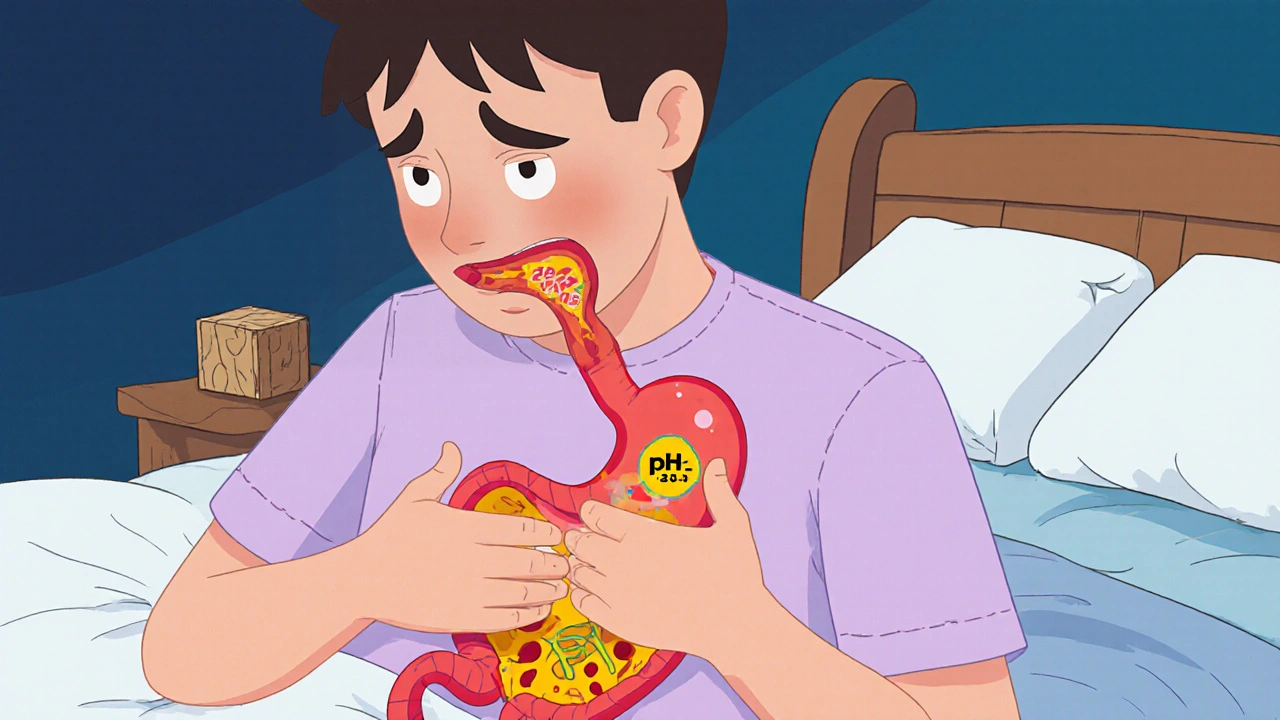GERD: Understanding Acid Reflux, Triggers, and Effective Treatments
When you have GERD, gastroesophageal reflux disease, a chronic condition where stomach acid flows back into the esophagus. Also known as acid reflux, it’s not just a bad meal or spicy food—it’s a recurring problem that can lead to real damage if ignored. Unlike occasional heartburn, GERD happens at least twice a week and often disrupts sleep, eating, and daily life.
It’s not just about the burn. GERD can cause a sour taste in your mouth, trouble swallowing, a chronic cough, or even hoarseness. Many people think it’s just indigestion, but if you’re relying on antacids every day, your body is sending a signal. The lower esophageal sphincter—the muscle that keeps acid in your stomach—has weakened or relaxed at the wrong time. This isn’t something you can outlast with more Tums. Over time, untreated GERD can lead to esophagitis, Barrett’s esophagus, or even increase cancer risk.
What makes GERD worse? Certain foods like coffee, chocolate, citrus, fried food, and alcohol. Lying down right after eating. Being overweight. Smoking. Even tight clothing around your waist can push acid upward. The good news? Lifestyle changes often do more than meds. Losing just 10% of body weight can cut symptoms in half. Elevating the head of your bed by 6 inches helps more than you’d think. Eating smaller meals and waiting three hours before lying down? These aren’t myths—they’re backed by clinical practice.
Medications like proton pump inhibitors (PPIs) and H2 blockers are common, but they’re not the only answer. Some people need surgery. Others find relief with dietary shifts or stress management. What works for one person might not work for another. That’s why knowing your triggers matters more than just popping a pill. The posts below cover everything from how PPIs affect your gut long-term to why some people still have symptoms even on medication—and what to do next.
You’ll find real-world advice on managing GERD without over-relying on drugs, how to spot when it’s something more serious, and what alternatives actually work. Whether you’re just starting to notice symptoms or have been dealing with this for years, there’s something here that applies to you.
GERD and Acid Reflux: How PPIs and Lifestyle Changes Work Together
GERD and acid reflux can be managed effectively with lifestyle changes and proper use of PPIs. Learn how weight loss, diet, and timing reduce symptoms-and why long-term PPI use carries risks that can be avoided.
More
